One week in: What we know about the Israel-Iran escalation
The conflict has reportedly killed at least 224 people in Iran and 24 civilians in Israel, with Iran firing 400 missiles since June 13
News Desk
The News Desk provides timely and factual coverage of national and international events, with an emphasis on accuracy and clarity.
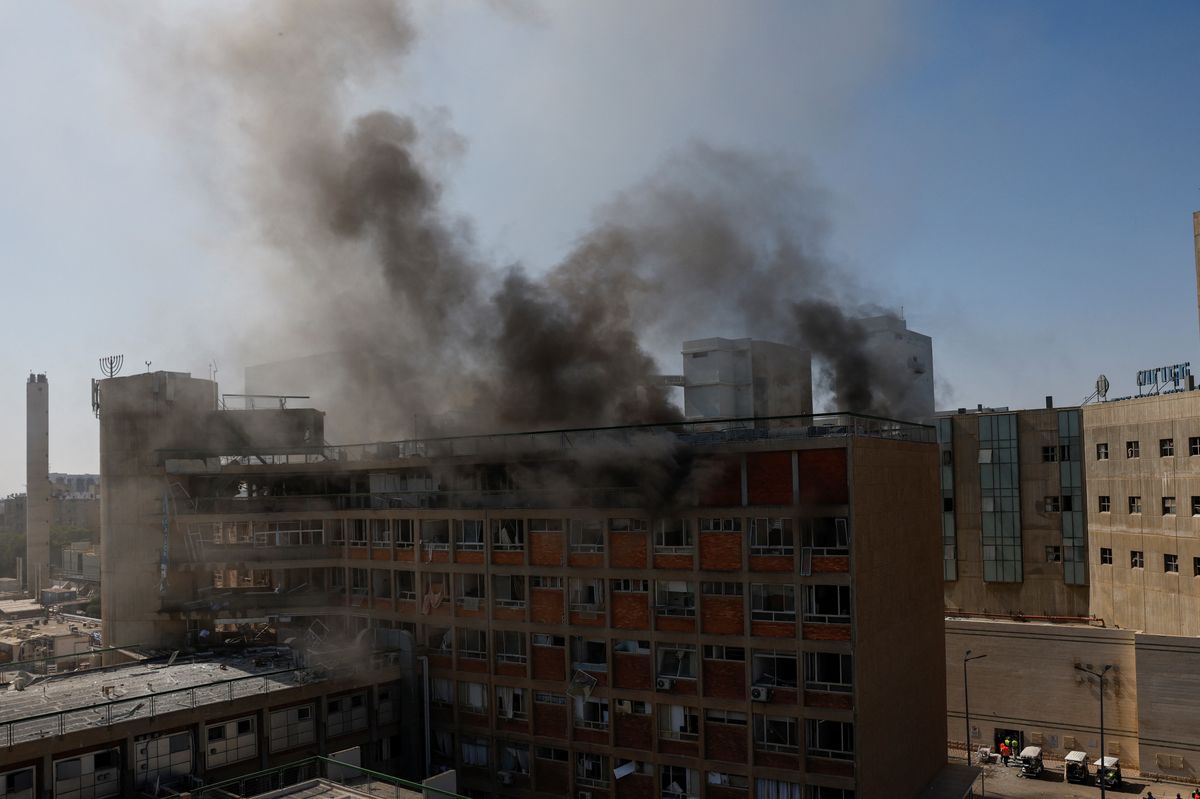
Smoke rises from Soroka Medical Center following a missile strike from Iran on Israel, in Be'er Sheva, Israel June 19, 2025.
Reuters
In one of the most serious escalations the Middle East has seen in years, Israel and Iran have traded deadly attacks over the past week, bringing the region to the brink of full-scale war.
The crisis erupted after Israel launched a surprise airstrike on June 13 targeting Iran’s nuclear and military sites, triggering a rapid and violent cycle of retaliation that has included missile strikes, cyberattacks, and sharp warnings from both nations’ leaders.
Operation Rising Lion: Israel’s preemptive strike
The confrontation began with Operation Rising Lion, Israel’s unannounced assault on June 13, involving over 100 simultaneous strikes across Iran.
Israeli jets, drones, and long-range missiles hit nuclear enrichment facilities in Natanz, Fordow, and Isfahan, as well as Islamic Revolutionary Guard Corps (IRGC) missile bases in Tehran and Kermanshah.
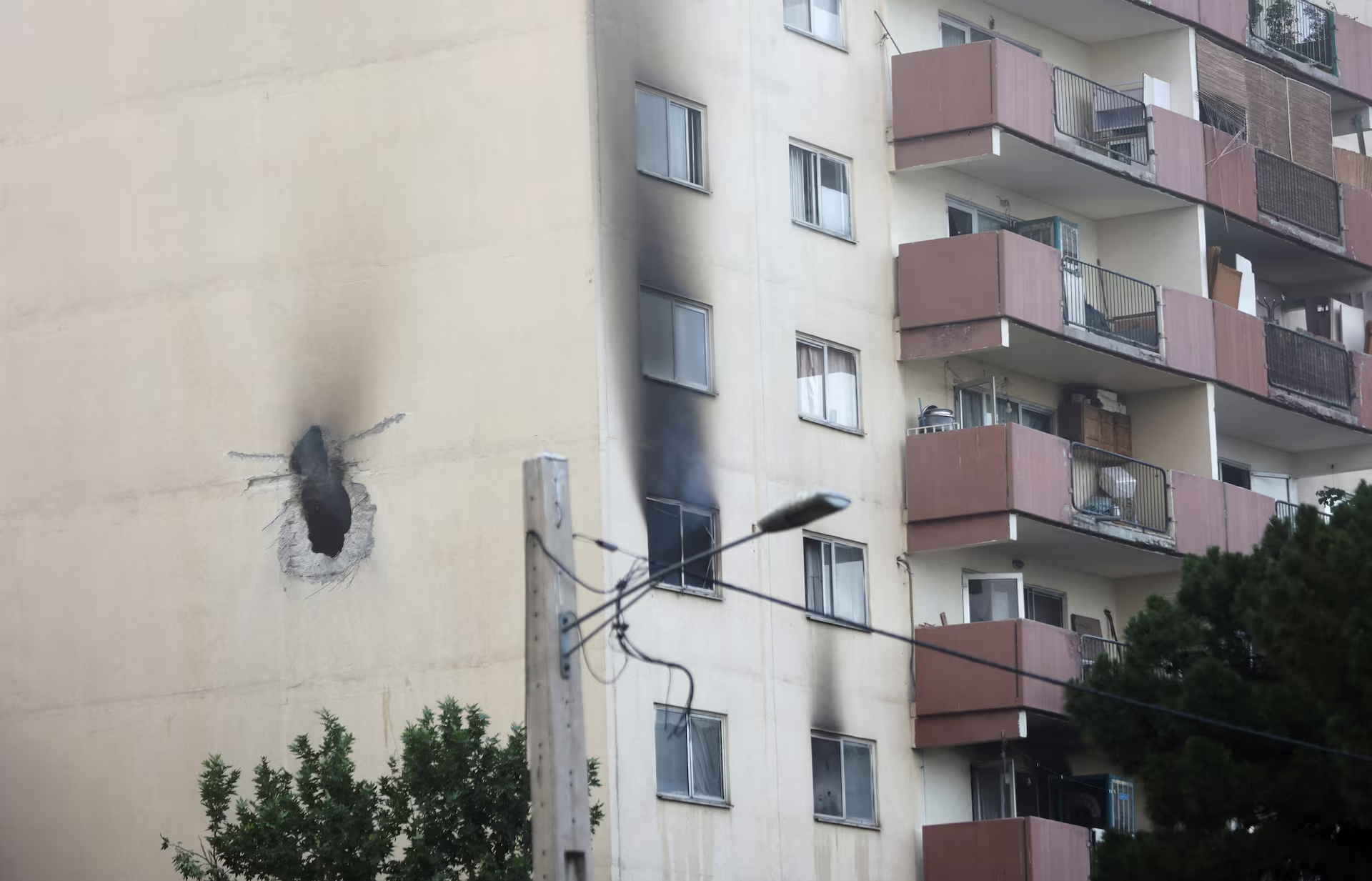
Israeli strikes reportedly destroyed fortified bunkers and command centers. Among those killed were some of Iran’s top military figures, including: Major General Mohammad Hossein Bagheri, Major General Hossein Salami, commander-in-chief of the IRGC; Major General Gholam Ali Rashid, commander of Khatam al-Anbia; Major General Amir Ali Hajizadeh, head of IRGC’s Aerospace Force and Ali Shamkhani, former national security chief and adviser to Ayatollah Khamenei.
Moreover, several prominent nuclear scientists -- including Fereydoon Abbasi, Mohammad Mehdi Tehranchi, and Ahmad Reza Zolfaqari -- were confirmed dead.
The next day, Israeli Prime Minister Benjamin Netanyahu addressed the Knesset, declaring:
“We will not have a second Holocaust, a nuclear holocaust. We already had one in the previous century. Never again is now, and we have to act now.”
- YouTube www.youtube.com
Iran responds
Within 48 hours, Iran launched a large-scale retaliatory strike involving more than 100 drones and ballistic missiles. Israeli cities -- including Tel Aviv, Haifa, Petah Tikva, and Be’er Sheva -- came under fire. Despite Israel’s Iron Dome defense system intercepting most projectiles, several hit populated areas, killing at least 12 civilians and injuring dozens more.
Air raid sirens forced millions into shelters, and emergency services reported around 200 people wounded during the overnight assault.
In a formal letter to the United Nations, Iranian Foreign Minister Abbas Araghchi condemned Israel’s actions, saying:
“Israel has now crossed every red line, and the international community must not allow these crimes to go unpunished.”
- YouTube www.youtube.com
Panic gripped Iranian cities, especially Tehran, as counterstrikes struck multiple locations. Roads were clogged with fleeing civilians, and fuel shortages and internet outages added to the chaos.
Media blackouts, cyberattacks, and civilian exodus
In a rare move, Israeli airstrikes targeted Iran’s state television headquarters, briefly knocking it off-air during a live segment. A visibly shaken anchor cut the broadcast short as explosions rocked nearby buildings.
By June 16, Israeli cyber units attacked Bank Sepah, disrupting banking transactions countrywide. Iran, undeterred, continued launching missile and drone waves toward southern Israel. Though many were intercepted, Israeli officials admitted to "a few penetrations."
US pressure builds: Trump weighs in
The United States, while not militarily involved yet, deployed additional defense systems to the region. Reports emerged that President Donald Trump had vetoed an Israeli plan to assassinate Ayatollah Khamenei, citing the lack of direct attacks on American assets.
“Have the Iranians killed an American yet? No. Until they do, we're not even talking about going after the political leadership,” a senior U.S. official told Reuters.
On June 17, Trump said U.S. patience was running thin but clarified there was no immediate plan to “take out” Iran’s leader. Still, just minutes later, he posted on social media: “UNCONDITIONAL SURRENDER!”
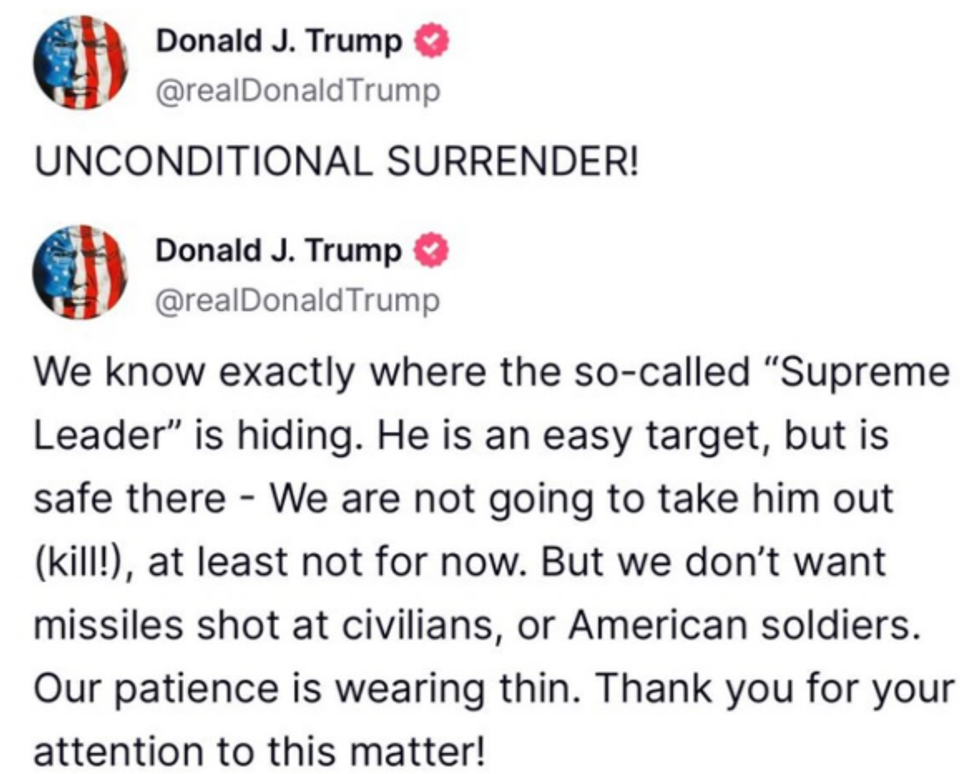
Israeli Defense Minister Israel Katz further escalated rhetoric:
“I warn the Iranian dictator against continuing to commit war crimes and fire missiles at Israeli citizens. He could face the same fate as Saddam Hussein.”
By June 18, Trump said he was weighing U.S. participation in Israeli strikes:
“I may do it, I may not do it. I mean, nobody knows what I'm going to do.”
He also claimed Iran had reached out for negotiations but doubled down: “My patience has already run out… we are demanding unconditional surrender.”
In response, Khamenei stood firm: “The Iranian nation will not surrender. Any U.S. military intervention will undoubtedly be accompanied by irreparable damage.”
Strategic aims: Leadership decapitation and deterrence
Analysts believe Israel is employing a “leadership decapitation” strategy, aiming to cripple Iran’s retaliatory command and control structure. The targeted killing of top IRGC commanders supports this theory.
Iran, however, insists its nuclear program is for peaceful purposes, despite its first formal violation of non-proliferation agreements in two decades, as confirmed last week by the International Atomic Energy Agency (IAEA).
Global alarm and market stability
Global leaders -- including the UN, EU, China, and Russia -- have called for immediate de-escalation. The G7 issued a joint statement urging a ceasefire and a return to diplomacy.
Despite fears of disruption, oil markets have remained stable, with the Strait of Hormuz still open.
Flames, fallout, and no ceasefire in sight
As of June 19, the situation remains intensely volatile. Iran launched dozens of ballistic missiles toward Israel, one of which struck Soroka Hospital in Beersheba, setting off fires and causing additional casualties.
In response, Israeli Prime Minister Benjamin Netanyahu warned that “Iran will pay a heavy price”, while also expressing gratitude to U.S. President Donald Trump, calling him “a great friend of the State of Israel” and noting they remain in continuous contact throughout the crisis.
Israeli airstrikes resumed overnight, with Defense Minister Israel Katz declaring that Khamenei would be held personally accountable for the attacks on Israeli civilians.
Casualty count and human toll
The human cost of the ongoing conflict continues to rise. In Iran, at least 224 people have been reported killed in Israeli strikes -- the majority of them civilians -- though the official death toll has not been updated in recent days.
On the Israeli side, authorities confirm 24 civilian deaths, with approximately 400 missiles launched at the country by Iran since June 13.
- YouTube www.youtube.com
Both countries' hospitals are overwhelmed by the influx of wounded, and civilians continue to endure the trauma of constant air raid sirens, bomb shelters, and disrupted daily life.
As strikes persist on both sides, the civilian toll underscores the devastating human price of the escalating conflict.
US reportedly mulls weekend strikes
Bloomberg News reported on June 19 that the U.S. is actively considering launching military strikes against Iran as early as this weekend. Citing senior officials, the report emphasized that the situation remains fluid and plans could still shift.
Russia warns US against intervention
Reacting swiftly, Russia’s foreign ministry warned Washington against military action. This came after a joint phone call between Presidents Putin and Xi Jinping, where both leaders condemned Israel’s attacks and advocated diplomacy.
Russian foreign ministry spokesperson Maria Zakharova said: “We would like to particularly warn Washington against military intervention in the situation. It would be an extremely dangerous step with truly unpredictable negative consequences.”
OIC called in Turkey
In a diplomatic development, Iranian Foreign Minister Abbas Araghchi is set to attend a special session of the Organization of Islamic Cooperation (OIC) in Istanbul on Saturday.
The 51st Council of Foreign Ministers will focus on Israel’s ongoing strikes, including the recent hit on Iran’s Khondab nuclear site near Arak.


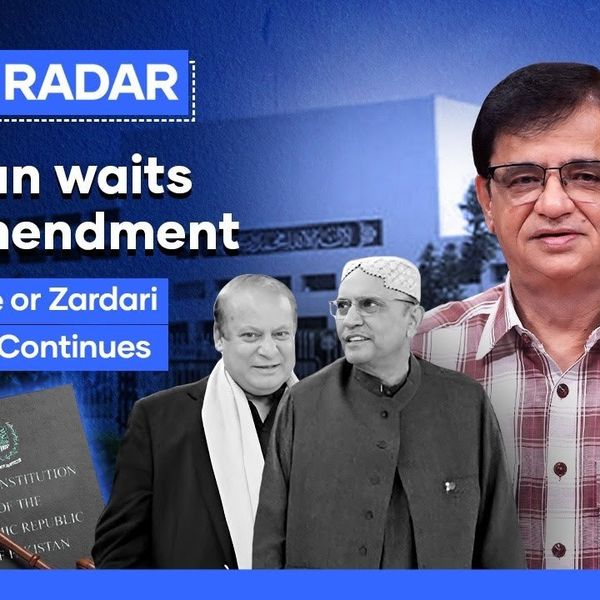
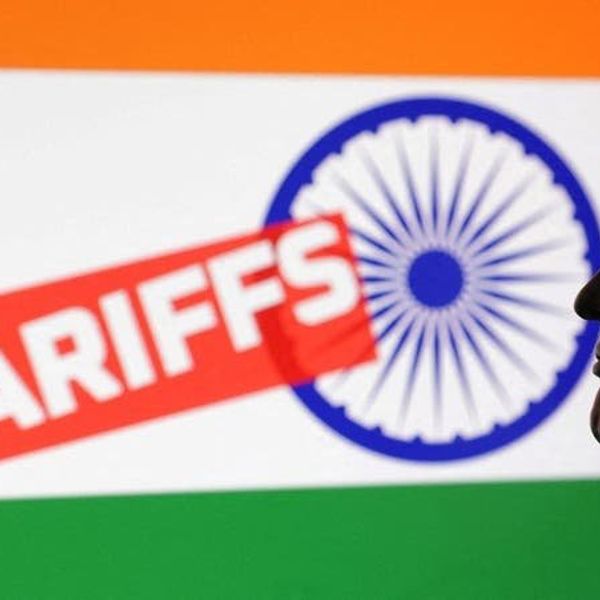
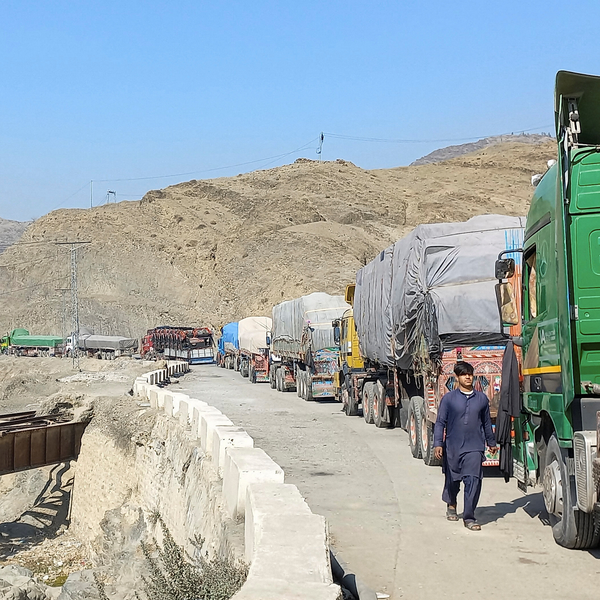
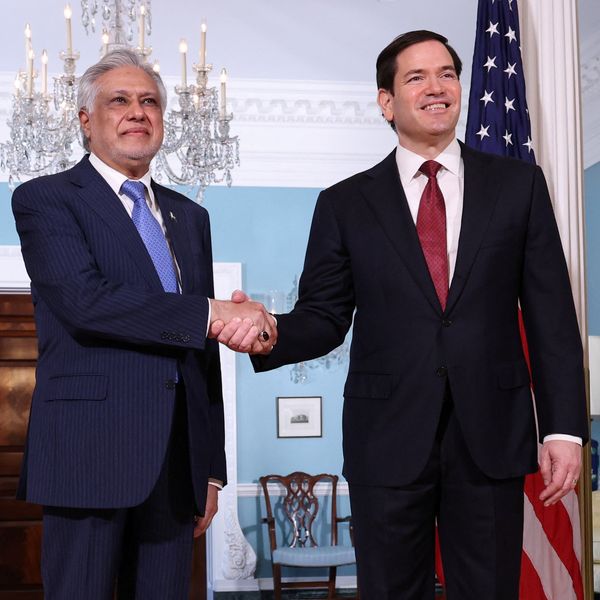




Comments
See what people are discussing